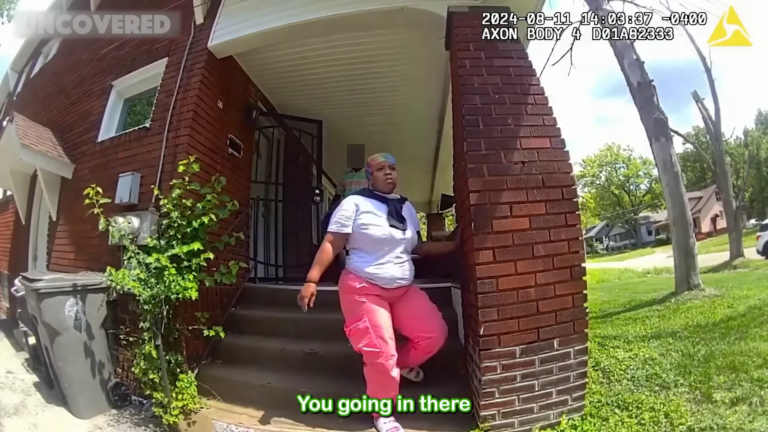
As the new year approaches, California renters are set to benefit from significant legal protections aimed at easing the burden of high rental costs. With new laws taking effect in 2025, tenants will find relief in areas such as security deposits and eviction processes, but not all stakeholders are on board with these changes.
Table of Contents
- Introduction to New Laws
- Additional Protections Against Evictions
- Challenges Ahead for Renters and Landlords
- The Call for More Support
- Conclusion and Next Steps
- FAQs About New Rental Laws
Introduction to New Laws
As we move into 2025, California is implementing new laws that will reshape the rental landscape. These changes are essential in a state where housing costs continue to skyrocket, making it increasingly difficult for residents to secure affordable housing. The new legal protections aim to address pressing issues faced by renters, particularly in high-rent areas like San Diego.

Photo by The frolicsome Fairy on Unsplash
Overview of Legal Protections
The upcoming legal protections will primarily focus on security deposits and eviction processes. One of the most significant changes is the cap on security deposits, which will now be limited to one month’s rent. This is a game-changer for many renters who have been forced to part with exorbitant sums just to secure a lease.
In addition to the deposit cap, new regulations will prevent landlords from evicting tenants based solely on police calls or suspected criminal activity, promoting a more stable living environment. These measures are designed to protect renters from unfair eviction practices and to foster a sense of security in their homes.

Photo by Tingey Injury Law Firm on Unsplash
Significance of Security Deposit Cap
The significance of the security deposit cap cannot be overstated. In San Diego, where the average rent for a one-bedroom apartment exceeds $2,400, prospective tenants have often faced security deposits that range from $4,800 to over $7,200. Such financial burdens have made it nearly impossible for many individuals and families to secure housing.
By capping the security deposit at one month’s rent, the state is providing immediate relief to those who are struggling. This change not only makes it easier for renters to move into new homes but also encourages a more equitable rental market.

Photo by Dibakar Roy on Unsplash
Impact on Renters in San Diego
The impact of these new laws, particularly in San Diego, is expected to be profound. Many renters have spoken out about the challenges they face due to high costs. With the security deposit cap, more individuals will be able to afford to move into decent housing without the crippling burden of paying several months’ rent upfront.
Moreover, the restrictions on eviction practices will provide additional security for tenants. Many renters live in constant fear of eviction due to circumstances beyond their control. The new laws will help alleviate this anxiety, allowing families to focus on their lives rather than the threat of losing their homes.

Photo by Blake Weyland on Unsplash
Voices of Support from Renters
Support for the new laws is palpable among renters in California. Individuals like Phyllis Sullivan have voiced their approval, emphasizing the need for these protections. Sullivan states, “People living in San Diego need help,” highlighting the urgency of the situation.
Many renters express relief and gratitude for the forthcoming changes, viewing them as a lifeline in a challenging housing market. The sentiment among those affected is clear: these legal protections are not just beneficial; they are essential for survival in a state where housing costs continue to soar.

Photo by Neil Thomas on Unsplash
Concerns from Property Owners
Despite the overwhelming support from renters, property owners have raised concerns regarding the new laws. The California Apartment Association warns that capping security deposits could lead to a reduction in available rental housing. They argue that limiting the financial protections available to landlords may discourage investment in rental properties.
Property owners fear that these restrictions could lead to increased housing shortages, further complicating the already tense rental market. Their concerns highlight the delicate balance that must be maintained between protecting renters and ensuring that property owners can sustain their investments.

Photo by Étienne Beauregard-Riverin on Unsplash
Additional Protections Against Evictions
As California implements these crucial new laws, additional protections against evictions are set to take effect. These measures are not only a response to the alarming rise in homelessness but also a necessary step to ensure stable housing for vulnerable populations. The law will prohibit landlords from evicting tenants based solely on police calls or suspected criminal activity, a change that addresses the fears many renters face when seeking help.
This is particularly important in communities where crime rates are higher and where residents may need to call law enforcement for assistance. By preventing evictions triggered by police involvement, the state is taking a stand against practices that disproportionately affect marginalized communities, thereby fostering safer neighborhoods.

Photo by Paolo D’Andrea on Unsplash
Understanding the New Eviction Regulations
The new eviction regulations aim to create a more equitable environment for renters. With the implementation of these laws, landlords will need to provide just cause for evictions, ensuring that tenants cannot be removed from their homes without a valid reason. This shift is a critical development in protecting renters from arbitrary evictions, which have been a persistent issue in California.
In addition, the new laws will require landlords to give tenants more notice before initiating eviction proceedings. This added time allows renters to seek legal assistance or find alternative housing, which is vital in a state where finding affordable options can be extremely challenging.

Photo by Tingey Injury Law Firm on Unsplash
Challenges Ahead for Renters and Landlords
While the new laws present opportunities for renters, they also introduce challenges for landlords. Property owners are concerned about how these regulations will affect their ability to manage their properties effectively. The California Apartment Association has voiced apprehensions about potential increases in property damage and unpaid rent as a result of the limitations imposed on eviction practices.
These concerns underscore the delicate balance that must be maintained. Landlords argue that without the ability to swiftly remove problematic tenants, they may be forced to increase rents or withdraw properties from the rental market altogether. This could exacerbate the housing crisis, leading to fewer options for those in need.

Photo by Erik Mclean on Unsplash
Potential Consequences for the Rental Market
The implications of these new laws could ripple throughout the rental market. If property owners feel their investments are threatened, they may choose to sell their properties rather than deal with the complexities of the new regulations. This could lead to a further tightening of the rental market, making it even harder for renters to find affordable housing.
Additionally, landlords may respond to these regulations by increasing rental prices to cover potential losses associated with extended eviction processes. This would counteract the intended benefits of the new laws, leaving many renters still struggling to afford housing.

Photo by Jacopo Maiarelli on Unsplash
The Call for More Support
As the challenges facing both renters and landlords become apparent, it is clear that additional support is necessary. Advocates for renters are calling for comprehensive solutions that address the root causes of the housing crisis. Simply implementing legal protections is not enough; there must be a simultaneous effort to increase the availability of affordable housing.
Government programs aimed at providing financial assistance to both renters and landlords could prove beneficial. For instance, subsidies for low-income renters or incentives for landlords to maintain affordable rental units can create a more balanced environment. This approach would help to alleviate the financial burdens on both sides, fostering cooperation rather than conflict.
Community Engagement and Advocacy
Community engagement is also essential in this fight for equitable housing. Local organizations and advocacy groups play a crucial role in raising awareness about renters’ rights and the importance of stable housing. By mobilizing communities to advocate for policy changes, these groups can help ensure that the voices of renters are heard in the legislative process.
Moreover, education initiatives that inform both renters and landlords about their rights and responsibilities can foster a more collaborative atmosphere. Understanding the laws and regulations can help prevent disputes and create a more harmonious rental environment.

Photo by Priscilla Du Preez 🇨🇦 on Unsplash
Conclusion and Next Steps
The new legal protections for California renters in 2025 represent a significant step forward in addressing the housing crisis. However, the challenges that lie ahead for both renters and landlords cannot be ignored. It is imperative that we continue to advocate for balanced solutions that benefit all stakeholders involved.
Moving forward, it is essential to monitor the impact of these new laws closely. Stakeholders must be willing to adapt and make necessary adjustments to ensure that the goals of affordability and stability are achieved. Collaboration between government, community organizations, and housing providers will be key in navigating these changes effectively.

Photo by Ondrej Bocek on Unsplash
FAQs About New Rental Laws
What are the key changes in the rental laws for 2025?
The key changes include a cap on security deposits limited to one month’s rent and protections against evictions based on police calls or suspected criminal activity.
How will these laws affect eviction processes?
Landlords will be required to provide just cause for evictions, and tenants will receive more notice before eviction proceedings can begin, allowing them time to seek assistance.
What should renters do if they experience issues with their landlord?
Renters should document any issues and seek legal assistance if they believe their rights are being violated. Community organizations can also provide support and resources.
Are there any resources available for landlords to understand these new laws?
Yes, landlords can access resources through property management associations and legal aid organizations that offer guidance on compliance with the new regulations.






